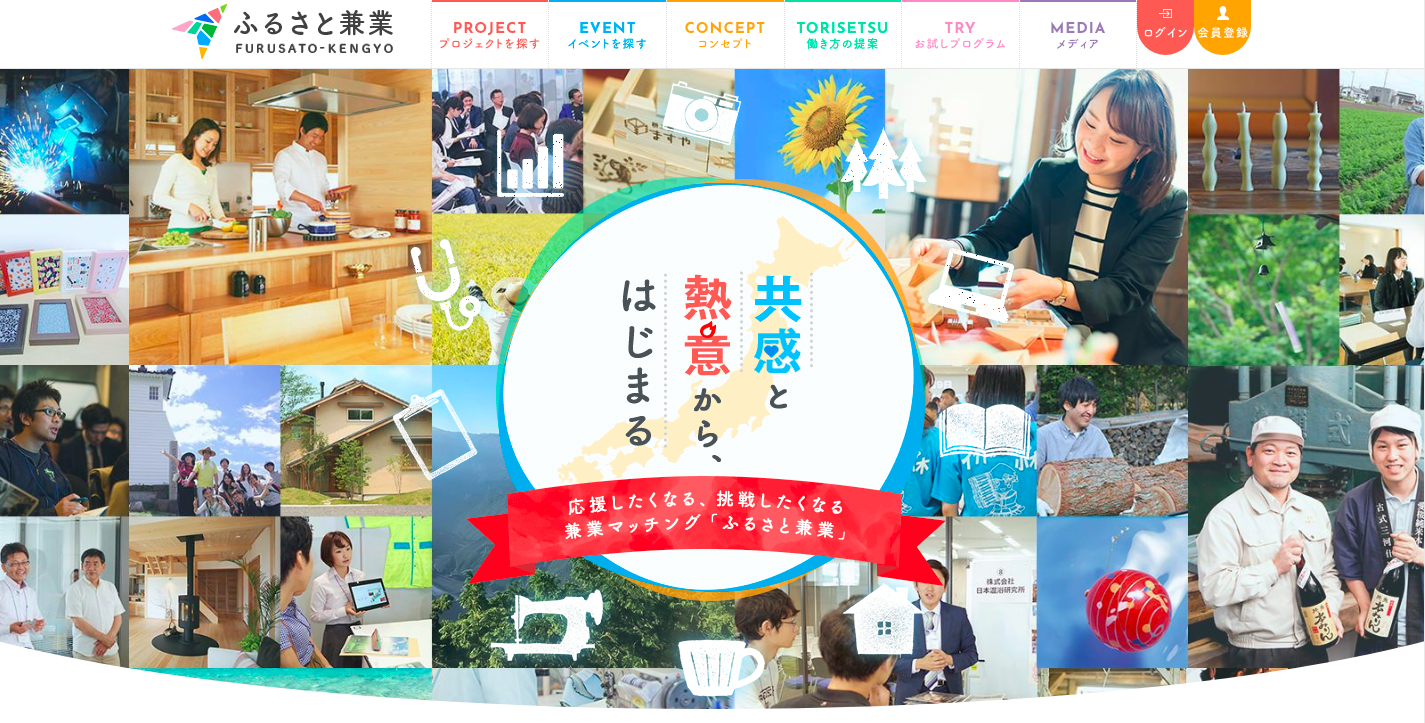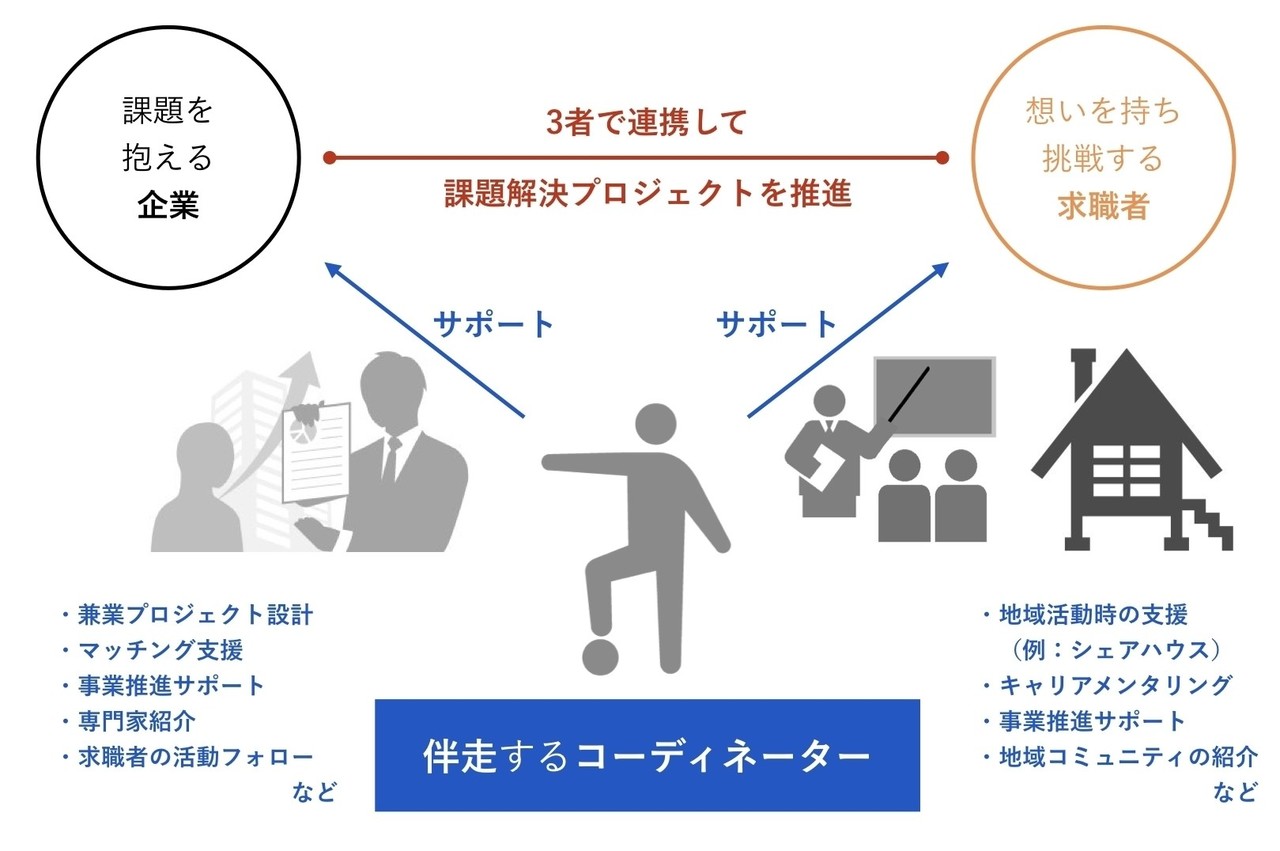Is the threshold for moving to the countryside too high? Let's start with the remote part-time job! | the rise of media sites for part-time jobs in rural Japan
In January last year (2018), the Ministry of Health and Labor of Japan revised the outline on "promoting sideline", prompting large enterprises that had been banned from sideline to begin to lift the ban, including Nissan Motor, Shinsei Bank and so on. In the same year, according to a survey conducted by the Institute of Inaugural Research in Japan, 33.5% of the working population with regular employment status, or more than 1/3, were willing to pursue a sideline career. Against this background, 2018 is known as Japan's "first year of part-time employment".
Under this wave of lifting the ban, many part-time media websites are springing up like bamboo shoots after a spring rain, and several of them are different from ordinary job-hunting websites, which focus on contributing their own efforts to the place, so that while working in the city, they can also take a part-time job at the far end through their own expertise and become the local "relationship population" [Note 1].


The role of local advisor (photo source: https://note.mu/ryu_7_7/n/na90ece1d5d4a)
Remarks
[note 1] related population: refers to the "third type of population" who is "above sightseeing but not yet occupied" at the local level. These people are not only tourists who visit the place at once, but also "the mystery of a place" who are interested, enthusiastic, and even looking forward to a certain place. some may consider the possibility of emigration, and some may not be able to do so because of the current living conditions.
[note 2] hometown tax: promoted by Japan's Ministry of General Affairs and implemented in 2008, the content is to enable urban working people to donate to local governments, enjoy tax credits and receive local gifts, so as to revitalize the local economy. The idea is that the population of local cities is shrinking and taxation is becoming more and more difficult, and through this system to attract people living in big cities after employment, they will "return part of the taxes paid to their hometown".
- Prev

Ilan is a natural relic 07 "Coral Dharma realm, guarding the coral culture of Southern Australia". The museum. "
Ilan is a natural relic 07 "Coral Dharma realm, guarding the coral culture of Southern Australia". The museum. "
- Next

Yunlin good rice export market Australia supermarket bought
Yunlin County Mayor Zhang Lishan actively expanded sales opportunities for Yunlin agricultural products after taking office. Recently, he led a delegation to participate in the Taipei International Food Exhibition with fruitful results. He received many export orders. Among them, Yunlin's total rice yield and quality stability are the highest in Taiwan.
Related
- A course of planting techniques and methods on how to grow carrots
- How to plant the latest tulips?
- Is it better to pick tea in the morning or in the afternoon? When is the best time for tea to be picked? what is the third or fifth tea?
- Launch Yuanxiao Happy combination Haocha + Tea Yuan healthy Taste
- Penghu Tourism "Fireworks 20 Parade with You"
- 2022 West Lake Happiness holds "Digital Revitalization Voucher" and draws iphone13 and laptop.
- Banqiao Fuzhou social houses are designed to change start-up combined with police elimination to create a safe and livable environment
- The convenient measure of "mechanical weeding" in Xinbei has been abused and the Agriculture Bureau has imposed heavy penalties on the illegal land consolidation.
- Changgeng University Joins Hands with Four Memory Factories to Rescue Memory Talent Shortage
- The list of Taiwan's top 100 MVP managers is listed by the Director-General of the Farmers' Association of Sanxia District.

